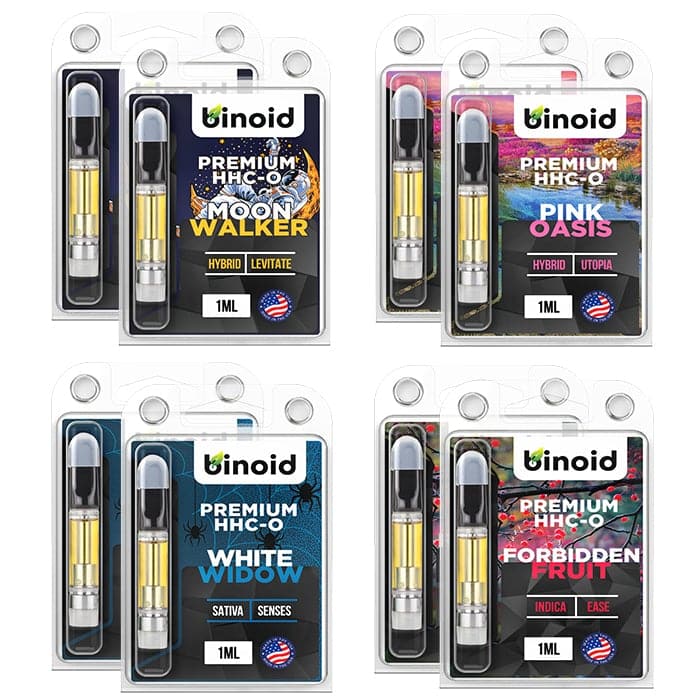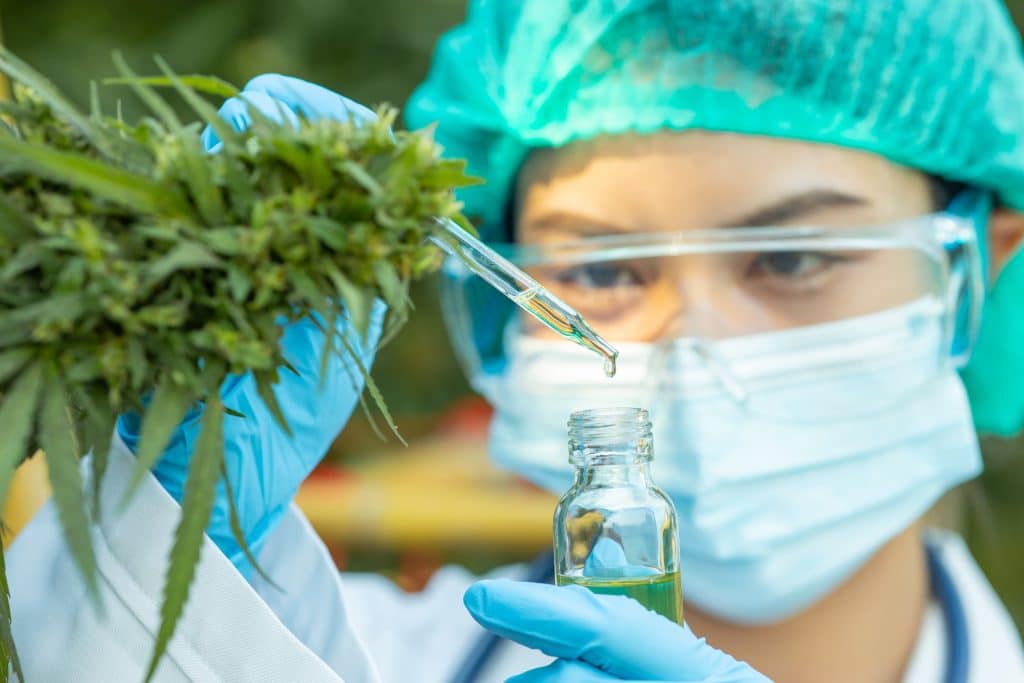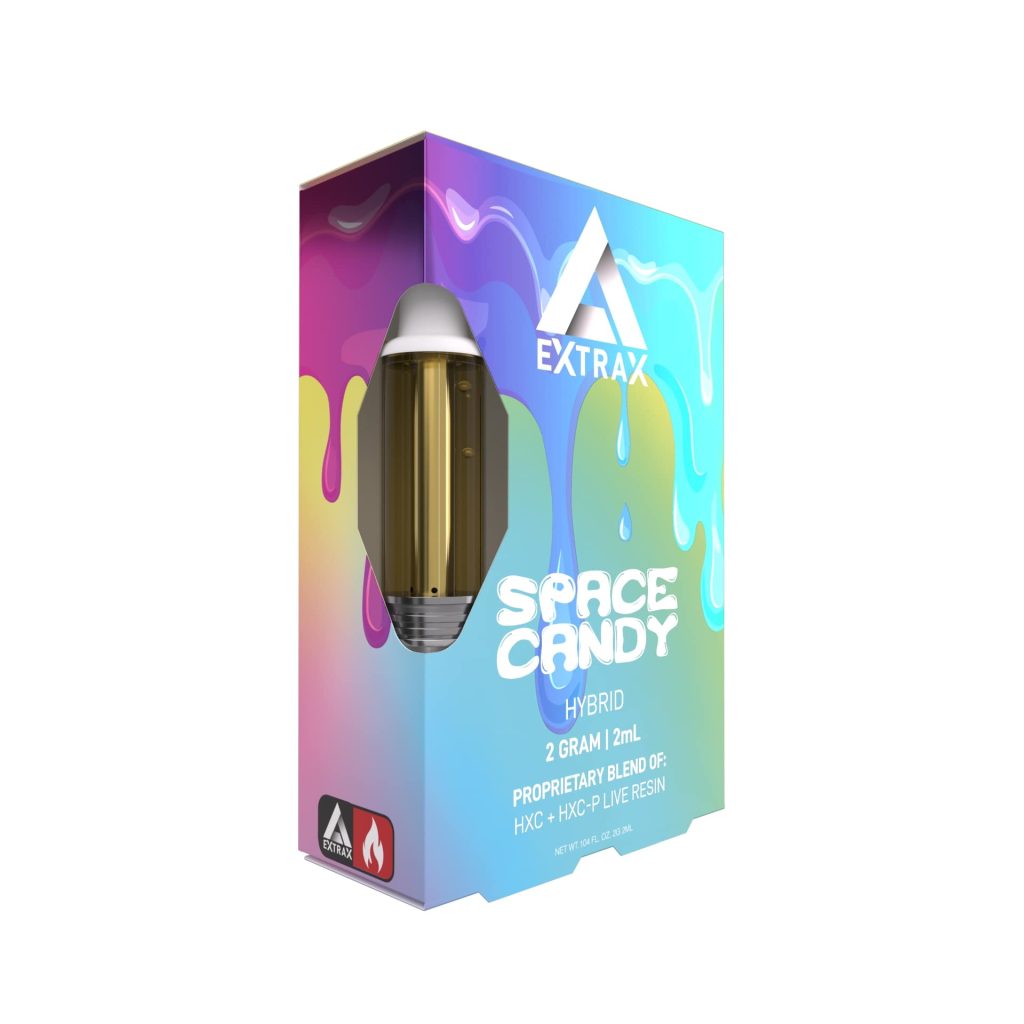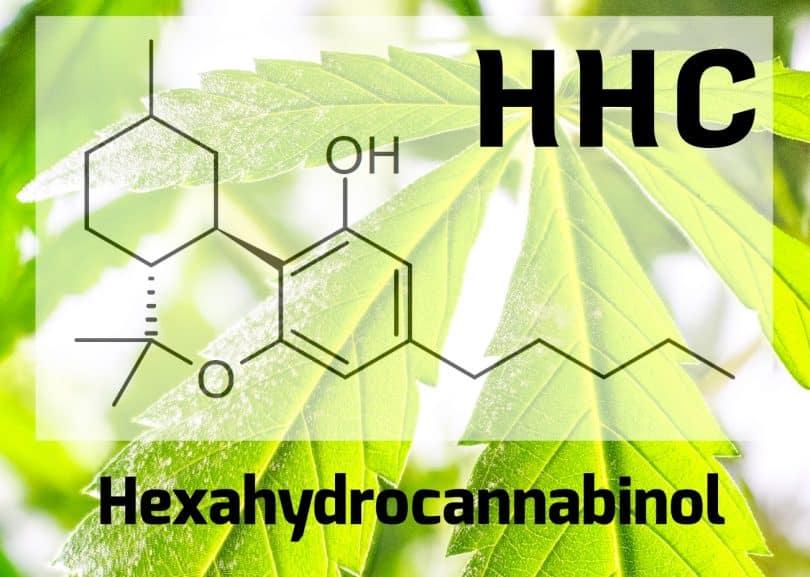The race to discover and create increasingly potent cannabis compounds is in full swing. This is why we have so many different versions of THC that manufacturers are beginning to use in their products, and now we’re starting to see a similar trend with the other class of psychoactive cannabinoids: hexahydrocannabinols.
New cannabinoids and new products are exciting, and we love to cover them all! How many different types of HHC are there? Or will there be? So far, we’ve heard about HHC-O, and a little bit about HHC-P. But it’s hard to say at the moment how many will exist. You can follow along by signing up for The Cannadelics Weekly Newsletter, which will give you immediate access to offers on cannabis products, including vapes, edibles, and other products. Also, it’ll get you premium access to deals on cannabis flowers, vapes, edibles, and much more! We’ve also got standout offers on cannabinoids, like HHC-O, Delta 8, Delta 9 THC, Delta-10 THC, THCO, THCV, THCP & HHC, which won’t kill your bank account. Head over to our “Best-of” lists to get these deals, and remember to enjoy responsibly!
What is HHC?
HHC, or hexahydrocannabinol, is a psychoactive compound found in cannabis plants. Although still part of the fringe market, it has been gaining some popularity, as far as alternative cannabinoids go. Regarding HHC research, it’s nearly non-existent. However, both natural and synthetic cannabinoids have been found to suppress tumor growth in numerous different animal studies.
One study in particular examined the angiogenic effects of several hexahydrocannabinol analogs to see how they can be used in cancer therapies. It was determined that HHC could block the growth of the blood vessels that feed tumors, rather than blocking growth of the tumor itself. So, it basically works as an angiogenesis inhibitor that starves tumors.
There is a biologically active naturally occurring (−)-hexahydrocannabinol, as well as its synthetic enantiomer (+)-hexahydrocannabinol. The synthetic HHC, which can be found in spice, has the chemical formula: 9-Nor-9β-hydroxyhexahydrocannabinol, and the natural variety, found in trace amounts in cannabis pollen, goes by the formula: 6aR,9R,10aR-Hexahydrocannabinol.
New: HHC-O Vape Cartridges

Get 25% Discount Using The Delta25 coupon code
This is a great deal if you’re looking to stock up on HHC-O vapes, or if you and your friends want to split the cost and all try out an interesting new compound. This bundle from Binoids comes with 8 carts in 4 different flavors, each containing 1 gram of HHC-O Acetate. A 4-pack bundle also availabe.
Flavors in this package:
- Moon Walker (hybrid)
- Pink Oasis (hybrid)
- White Widow (sativa)
- Forbidden Fruit (indica)
Using our coupon code, DELTA25, you can get this bundle for only $180, that’s $22.5o/cart! Check it out before the sale ends!
Click HERE to buy HHC-O vape carts
As the name suggests (Hexahydrocannabinol vs Tetrahydrocannabinol), HHC has many similarities to THC. It’s basically a simplified version of Delta 9 THC. Both HHC and THC have very similar molecular structures and comparable effects. With HHC, all the double bonds have been broken and replaced with hydrogen (AKA hydrogenation). It was discovered during research in the 1960s and 70s in which the goal was to find the most basic cannabinoid-like substances that could still bind to CB receptors.
High Potency: HHC-O and HHC-P
As of late, the industry seems hellbent on accessing and synthesizing hundreds of new cannabinoids, both those that have been discovered in the cannabis plant, and various analogues and isomers. HHC, and the possibility of different types of HHC, has recently opened the discussion in some circles regarding the differing chain lengths of HHC, HHCV, HHCB, HHCP, etc. These are the same chain lengths we see in various THCs.
Now, keep in mind that these are all synthetic cannabinoids – but the definition of ‘synthetic cannabinoids’ can mean one of two things. First, synthetic cannabinoids are compounds that do not exist in nature and must be created in a lab, like THC-O. Also, a synthetic can be a cannabinoid that does exist in nature, but in such minimal amounts that in order to manufacture enough for it to be used in consumer products, it must still be synthesized in a lab, like Delta 8 THC.

HHC-O falls into the first category, while HHC belongs to the second. In cannabis plants, HHC is found in trace amounts in the pollen. HHC-O, on the other hand, is the acetate version of HHC. What about HHC-P, a carbon version of HHC? There is current interest in HHCV, HHCB, HHCP? These are apparently extremely easy to make from their THC counterparts.
We’re seeing a small influx of new, HHC-P products, hitting the store shelves, but it’s close to impossible to find any information about this cannabinoid that comes from a neutral, fact-based party rather than from the companies who are selling it. It’s likely because, the companies selling the compounds are also the ones who are creating them in the first place, and no one else really knows about these compounds or has had the opportunity to study them yet.

Shop the new collection of HXC/HXC-P vape products from Delta Extrax. Get your choice of 2 gram carts or 2 gram disposables, starting at only $19.49 when you use the Delta25 coupon code. You get a wide assortment of flavors such as space candy, runtz, SFV OG, super glue, and more!
Click HERE to get your HXC/HXC-P products
(Using ‘Delta25’ coupon code)
A bit more on the acetylation of compounds
HHC-O is created via a process known as LTA decarboxylation. To understand what this means, let’s backtrack a little. We all know about delta 9 THC, the primary psychoactive compound in the plant. Delta 9 THC is a result of the light/heat induced decarboxylation of THCA (tetrahydrocannabinolic acid). Similarly, HHC-O is a result of the decarboxylation of HHC, however, it’s done using a completely different method: LTA decarboxylation.
LTA decarboxylation uses a very toxic compound known as lead tetraacetate to promote oxidation and create oxidative decarboxylation, resulting in acetate ester. Acetate ester is not naturally occurring and can only be produced using some sort of chemical catalyst. As such, HHC-O-Acetate is a synthetic analogue of HHC. Although it’s gaining popularity, especially in vape products, it’s important to know that this is NOT a compound found naturally in cannabis, it is completely synthetic from all standpoints.
All this is not to say that synthetics are inherently bad. If they’re safe and produced by an experienced professional, they can be fun and certainly have their place in both medicinal and recreational settings. But you’re definitely not going to get the same kind of high or experience with these products as you would with the real thing. If you know what to expect, you won’t be disappointed though.
Where to find different HHC-O, HHC-P, and others?
Right now, the best place to find HHC, HHC-O, and possibly HHC-P, is from a trusted online retailer. Even HHC, which has commercially available for about 6 months now, is not as common as other alternatives cannabinoids. As you already know, whenever a new and interesting product hits the market, we’ll be among the first to secure some amazing deals for our readers.
If you’re interested in trying out HHC/HHCO/HHCP/etc. products, make sure to subscribe to The THC Weekly Newsletter, your top source for all things relating in the cannabis industry, including exclusive deals.









